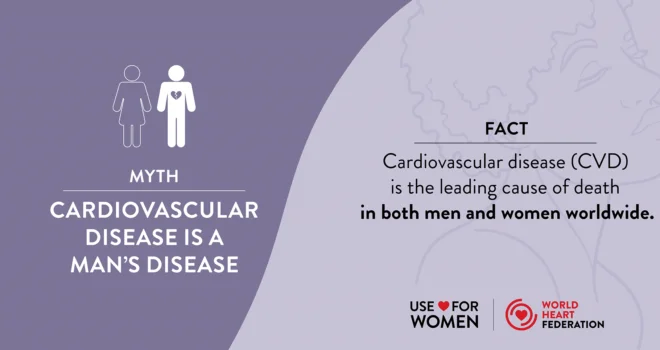On 27 January, American Heart Association Vice President Dr Kathryn Taubert delivered a statement on the Global Strategy on Women’s, Children’s and Adolescents’ Health agenda item at the 138th Session of the World Health Organization Executive Board in Geneva.
Dr Kathryn Taubert in red
The World Heart Federation (WHF) statement she delivered focused on our belief that as long as rheumatic heart disease (RHD) is prevalent, the objectives of the Global Strategy cannot be achieved: maternal mortality caused by RHD prevents mothers from surviving, while children and adolescents cannot thrive due to RHD’s high levels of morbidity
Q&A with Dr Kathryn Taubert, American Heart Association Vice President
This short Q&A with Kathryn provides information on the Global Strategy on Women’s, Children’s and Adolescents’ Health and how WHF is involved.
What is the Global Strategy on Women’s Children’s and Adolescent’s Health?
The Global Strategy on Women’s, Children’s and Adolescents’ Health 2016-2022 (Global Strategy) is a roadmap to achieve the right to the highest attainable standard of health for all women, children and adolescents – to transform the future and ensure that every newborn, mother and child not only survives, but thrives. Led by the WHO, the strategy is set to ensure that women, children and adolescents are at the heart of the UN Sustainable Development Goals.
How has the WHF been involved with the Global Strategy?
The creation of the Global Strategy was a collaborative process. The WHO reached out to several organizations, including the WHF, to provide expert advice and recommendations on what should be included in the Global Strategy. On behalf of our 200+ member organizations, the WHF recommended specific language on heart disease to be included in in relation to women, children and adolescents.
Why does the WHF feel so strongly about women’s health?
Cardiovascular disease (CVD) is the biggest killer of women worldwide. One in three deaths in women is due to CVD – it kills approximately one woman every four seconds. Cardiovascular events can be experienced differently by women than men, leading to difficulties in diagnosis and treatment that are compounded by stubborn myths and misconceptions about CVD in women. The WHF and our members are committed to tackling these barriers: for example, the American Heart Association is leading a global ‘Go Red For Women’ campaign, designed to empower women to take control of their heart health.
What about children and adolescents?
Healthy behaviours should be learnt in childhood if they are to be practised across the lifecourse. Worrying trends of childhood obesity and physical inactivity are emerging, which indicate that people are exposed to CVD risk factors from a very young age. The roots of adult CVD so often stem from childhood. It is important that the Global Strategy addresses non-communicable disease (NCD) risk factors as part of a holistic movement to improve the health and wellbeing of all young people.
How is RHD supported by the Global Strategy?
RHD is pertinent to all of the populations addressed by the Global Strategy. RHD begins in childhood – the average age for the first episode of rheumatic fever is 11 years old – and if not systematically controlled through basic primary care can progress into adolescence with devastating consequences. RHD can also have severe implications for young women and on maternal health – 36% of pregnant women with RHD seeking hospital care in Senegal died during pregnancy, while in one Ethiopian study 66% of patients with severe RHD were women, with a median age of 28. In short, as long as RHD is prevalent, the objectives of the Global Strategy cannot be achieved, which is why the World Heart Federation is making this statement to the WHO Geneva Exeuctive Board.


